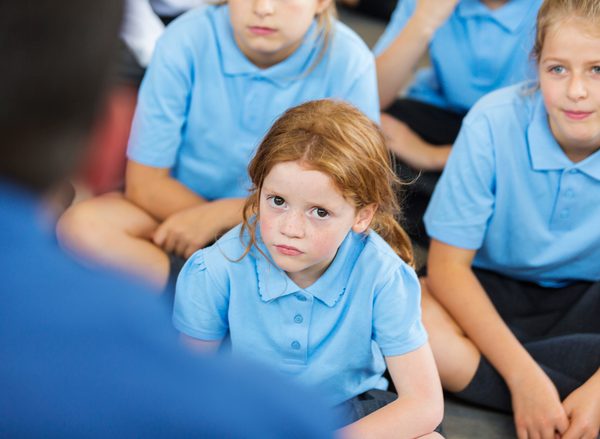
The invisible crisis of lost learning
Article
We urgently need more resources to allow schools to take a different approach to exclusions to ensure the most vulnerable students aren’t left behind.
At school, I was one of the lucky ones. My school days were happy ones, but not all my classmates who started with me as nervous 11-year-olds finished school with me at 16. Many were excluded, removed by family due to school not meeting needs or gradually stopped attending altogether.
Our new analysis finds that children in the UK have lost 32 million days of school learning in the 2022/23 school year, and it is the poorest who are hit hardest. We’ve also found that suspensions and exclusions have increased to 625,000 in the school year 2023/24, up by over one-fifth from the previous year.
Our new Who is Losing Learning report delves deeper into this issue, exploring what is causing this problem and establishing a new framework to understand the impact of school exclusions. Worrying numbers of young people are losing valuable learning, and exclusions and suspensions are just the tip of the iceberg.
In fact, children miss learning for all sorts of reasons. But it’s lazy to reduce this problem to a small number of children or simply a behaviour crisis. We recognise the challenges facing schools and teachers with minimal resources. However, in the post-pandemic era we should be finding new ways to get every single child back on track in their learning and development and that's by paying attention to unmet needs.
children from low-income backgrounds, with special educational needs, and those with mental health issues are the most likely to miss learning
Who is impacted and what does this mean for education?
It’s worrying that the children that are in most need of support have access to the least amount of resources to support them in their school career. For example, children from low-income backgrounds, with special educational needs, and those with mental health issues are the most likely to miss learning. For example, the poorest students are four times more likely to be excluded and children with SEND are five times more likely to be excluded. There is also a racial injustice at play with Black Caribbean and Irish Traveller and Romani (Gypsy) Roma children disproportionately more likely to be excluded.
The previous government have also missed their targets year after year to recruit teachers into initial teacher training, with many leaving the sector entirely predominantly due to stress. When 90 per cent of excluded pupils do not achieve a pass in GCSE Maths or English, we urgently need more resources to allow schools to take a different approach to ensure the most vulnerable students aren’t left behind.
There are overwhelmingly poor outcomes for excluded children, with over half of children not entered for Maths and English GCSEs in alternative provision schools
We know that education is an important route out of poverty, and we’re failing children by not ensuring we are offering the right support at school. Our report has also found that there are wider societal impacts that school exclusions contribute to.
Cost to the state: our analysis has shown that there is a £1.6 billion cost to the state over a lifetime for just a single cohort of permanently excluded children.
Youth violence: Half of young people serving custodial sentences are persistently absent from school, and three out of four have been suspended at least once.
Youth unemployment: There are overwhelmingly poor outcomes for excluded children, with over half of children not entered for Maths and English GCSEs in alternative provision schools and fewer than 5 per cent gaining a standard pass.
We believe these issues are often pushed aside as only impacting a small number of pupils, yet what the evidence teachers and pupils tell us is that this impacts a much wider group of young people.
What needs to change?
- More support for the growing number of children with special educational needs.
- Expand teacher training to better respond better to unmet needs.
- Understand better what young people are experiencing at home and in their communities by looking beyond the school gates
- Better data to capture every form of lost learning across school and multi academy trust level!
The Who is Losing Learning Coalition has brought together policy experts from across the education sector to establish detailed policy recommendations that we’d like to see the current government implement over their next term.
We believe these issues are often pushed aside as only impacting a small number of pupils, yet what the evidence teachers and pupils tell us is that this impacts a much wider group of young people.
Every child can be at risk of lost learning, but if we tackle this problem at the sharpest end, it’s those worst impacted that are set to gain the most.
Related items

Improvement through empowerment: Helping our teachers and schools be the best they can be
This report provides a road map for how both teachers and schools can drive excellence in education.
Balancing act: Navigating the tensions in our school system
What academic evidence has to say about the changes needed in education and learning
Out of kilter: How to rebalance our school system to work for people, economy and society
In this report, we argue for four shifts in education and learning in order to better unlock the potential of all young people.
